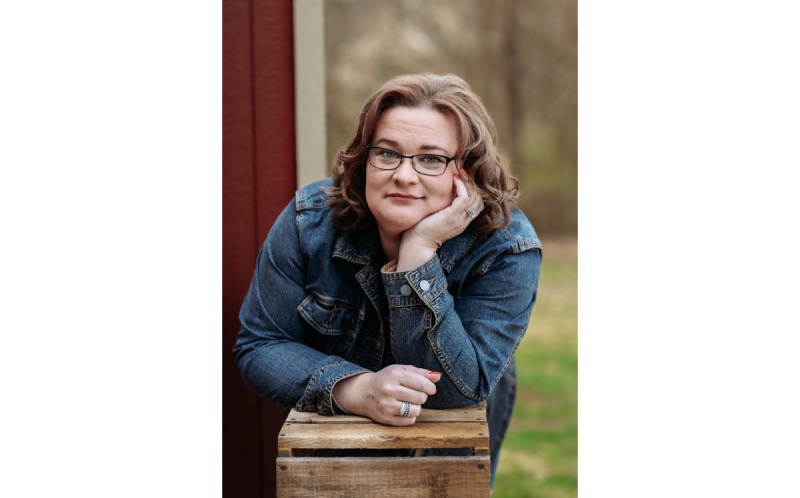My writing journey began with a charming twist: as a three-year-old, I would read my dad to sleep. He was supposed to be the one reading “Little Chick’s Big Day” to me, but exhaustion from his long hours on the farm often left him snoring while I eagerly showcased my new reading skills. This early interaction with books sparked a lifelong love for the written word.
Growing up, I read everything that caught my eye, from dictionaries and encyclopedias to National Geographic and Reader’s Digest magazines, courtesy of my aunt. Fiction entered my life during the teenage years with the “Sweet Valley High” series, which I collected and devoured. I think I had the entire set. I started a diary, but writing about my own day wasn’t very interesting. I did hand-write a little book and even illustrated the cover; I couldn’t even tell you what it was about. I found it when I cleaned out my parents’ house and promptly threw it away. I should have kept it; it would be an interesting conversation piece now—”My First Book.”
I still remember how Junior High School brought its challenges, particularly with Mrs. Brown. I wasn’t her favorite student, despite excelling in every class and subject. Even when teachers didn’t like me, they still gave me good grades because I delivered the work. Mrs. Brown, our English teacher, didn’t like my round handwriting or my excessive use of commas. I can still remember her standing over my shoulder, pointing at my writing, and saying, “You don’t need a comma for every breath you take!” She still gave me an A. To this day, too many commas bother me. I’m a grammar nerd, even if writing this book series has shown me how much I’ve forgotten and how the rules have changed.
During high school and college, I found term papers fascinating and so much fun. I could research and write a paper over a weekend and still get a great grade. I tackled topics like the Hoover Dam, William Shakespeare (complete with a homemade, toothpick, to-scale replica of the Round Theatre), the long-term effects of insomnia, ancient Mayan culture, Neuschwanstein Castle (complete with a 3D puzzle), and soybean genetics. Even my book reports were well-researched and excessively long. My speech presentations covered intriguing topics like homemade cheesecake and genetically modified crops.
As an adult, my writing shifted to work-related projects: website copy, brochures, training manuals, business plans, and more. I’ve written blogs off and on for various endeavors and even wrote a persuasive letter to a property owner, successfully lowering the price to what my then-husband and I could afford.
In the spring of 2023, my home and I were caught in a chemical drift cloud from the neighboring farm. I was knocked down, just like the weeds. By autumn, I was quite weak, bedridden, and unable to find any local medical support for the symptoms I was experiencing. I couldn’t work or function and had lost hope. Vivid, almost real, nightmares plagued me at night.
One night, I woke up suddenly with a clear vision: applying for a job at a rock quarry, an all-white building that was more than it appeared, two guys walking down a dark hallway, and a door opening to a blue-lit space with extensive cherry woodwork. I couldn’t get these realistic images out of my head, even in the dark bedroom.
A still, quiet voice inside me said, “Write it down.” So, I pulled myself up, went to the office, and grabbed my laptop. For the next few weeks, I found any position I could—sitting up in bed, lying across it, balancing the laptop on my knees—to keep typing. The story just poured out, even though my wrists were on fire.
I was floored. I’d never written a book, but suddenly, there it was, appearing at my fingertips. The story kept flowing, and I kept typing. The entire process gave me a small boost each day, even though I was feeling terrible. I worked hard to stay upright and keep writing.
Despite physical pain, writing became my lifeline, giving me purpose. By December, with the help of a clinic in Chicago, I regained some functionality and read my work aloud to my partner. His positive response encouraged me to pursue publication. A serendipitous click on a publishing house advertisement led to a fruitful collaboration, and we’ve been working diligently to bring my book to readers.
Something unique I’ve added to this journey is the sheer spontaneity and therapeutic nature of my writing process. The story that emerged during my illness felt divinely inspired, flowing seamlessly from my mind to the keyboard. Writing became not only a creative outlet but a means of coping and healing during one of the most challenging times of my life. This experience underscored the profound impact that storytelling can have on our personal well-being.
Writing this book has been transformative for me. It required revisiting and refining my grammar skills, often reminding me of my teacher’s admonitions about excessive commas. Through each revision, I felt a deep sense of fulfillment, knowing I was crafting a story worth sharing.
Reflecting on my journey with the written word, from reading to my dad at three to accidentally completing my first novel; it’s been a winding and unexpected path. My passion for reading and writing has always been a constant, even if the nature of that writing has evolved over the years. From academic papers and work-related content to this unexpected foray into fiction, each step has shaped my understanding and love for storytelling.
The challenges I’ve faced, particularly with my health, have been significant. Yet, through it all, writing has been a source of solace and strength. It gave me a purpose when I needed it most and reminded me of the power of words to transform and heal.
“There is no greater agony than bearing an untold story inside you.”
- Maya Angelou


